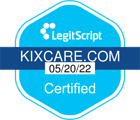Contributions by: Ashton Thornton, RN, BScN
Ireti Ilori RN, BScN
Feeding your baby in its first year can be very intimidating because there are many different feeding methods. Don’t worry; KixCare is here to help! If you have questions about feeding or your baby’s health in general, talk to a KixNurse by signing up for Kix360° today!
Breastfeeding + Bottle Feeding
Breastfeeding has many natural health benefits for newborns. However, if you are unable or don’t want to breastfeed, bottle feeding is an excellent alternative!
We understand breastfeeding can be difficult. Don’t be afraid to ask for help from healthcare professionals or friends and family. Here are some common questions about breastfeeding.
What is breast milk?
- Breast milk contains antibodies and other immune factors that help prevent your baby from getting sick.
- Breast milk is naturally produced by each mother for her baby and has the nutrients needed for the baby’s growth and development.
How do I know my baby is getting enough milk?
Your baby is getting enough milk if:
- They are back to their birth weight between 10-14 days.
- They make swallowing sounds while nursing.
- They gain weight steadily after the first 1-2 weeks.
- They are feeding at least 8 times within 24hrs.
- Your breasts feel softer after a feed.
- They have a wet diaper 6-8 times a day.
What are signs that your baby has a good latch?
- The latch is comfortable and pain-free.
- Your baby’s chin touches your breast.
- Your baby’s mouth opens wide around your breast, not just your nipple.
- Your baby’s tongue cups under your breast.
- You hear or see swallowing with pauses in between.
What if I can’t breastfeed my baby?
If you cannot breastfeed, or if breastfeeding isn’t for you, don’t worry. It’s important to remember that a fed baby is a healthy baby! Instead, use store-bought iron-fortified infant formula for the first 12 months, as this is nutritionally similar to breastmilk and will support the baby’s growth and development!
Once your baby is 4-6 months old, it’s time for them to try some solid food. Although this process can be taxing as you work out what works for you and your baby, KixCare is here to help! Some of the questions our KixNurses get asked all the time are…
When is a good time to introduce my baby to solids?
You can introduce solids to your baby at about 4-6 months, but you should continue breastfeeding or formula feeding as you introduce new foods.
Remember: all babies are different, and introducing new foods will be trial and error!
How do I know my baby is ready to start trying new foods?
Your baby is ready to try new foods if…
- They can sit up without support, lean forward, and reasonably control their neck muscles.
- They show interest in food when others are eating.
- They open their mouths when you offer them food.
- They swallow their food instead of pushing it back out of the mouth and transferring the food from the front to the back of the tongue to swallow it.
What solids should I start feeding my baby?
We recommend offering iron-rich foods at least twice a day while breastfeeding or formula-feeding your baby. Some examples of iron-rich food are:
- Meat
- Poultry
- Cooked whole eggs
- Fish
- Tofu
- Vegetables
- Fruits
- Well-cooked legumes like beans, peas, and lentils.
If your little one is getting ready to embark on their solid food journey, you may have come across an alternative feeding method – baby-led weaning.
Baby-led weaning is an alternative feeding method when your baby is ready to start eating solids. If you want to learn more about baby-led weaning and if this is the best route for your child, sign up for Kix360° and speak to a specialized pediatric KixNurse.
What is baby-led weaning?
Baby-led weaning introduces solid food to babies whereby purées and spoon-feeding are skipped entirely in favour of finger foods that a baby self-feeds.
What are some benefits of baby-led weaning?
- Independence: Your baby learns to eat independently.
- Development: Your baby practices critical motor and oral skills.
- Appetite Control: Your baby controls how much to eat and learns to stop when complete.
- Ease: Your baby (mostly) eats what you eat. So you don’t have to make special meals!
- Variety: Your baby can learn to eat a variety of textures and flavours, which may reduce picky eating later on.
- Family Meals: Your baby can be a part of your family meal as they eat with you.
- Dining Out: Eating out in restaurants is manageable as your baby can eat a greater variety of foods.
- Fun: Your baby can enjoy touching, inspecting, and tasting various flavours and textures.
We hope this answers some of your questions about feeding your newborn in its first year. As always, if you have any questions about feeding your baby or their health and wellness more generally, become a member of Kix360° and talk to a specialized pediatric nurse today!



